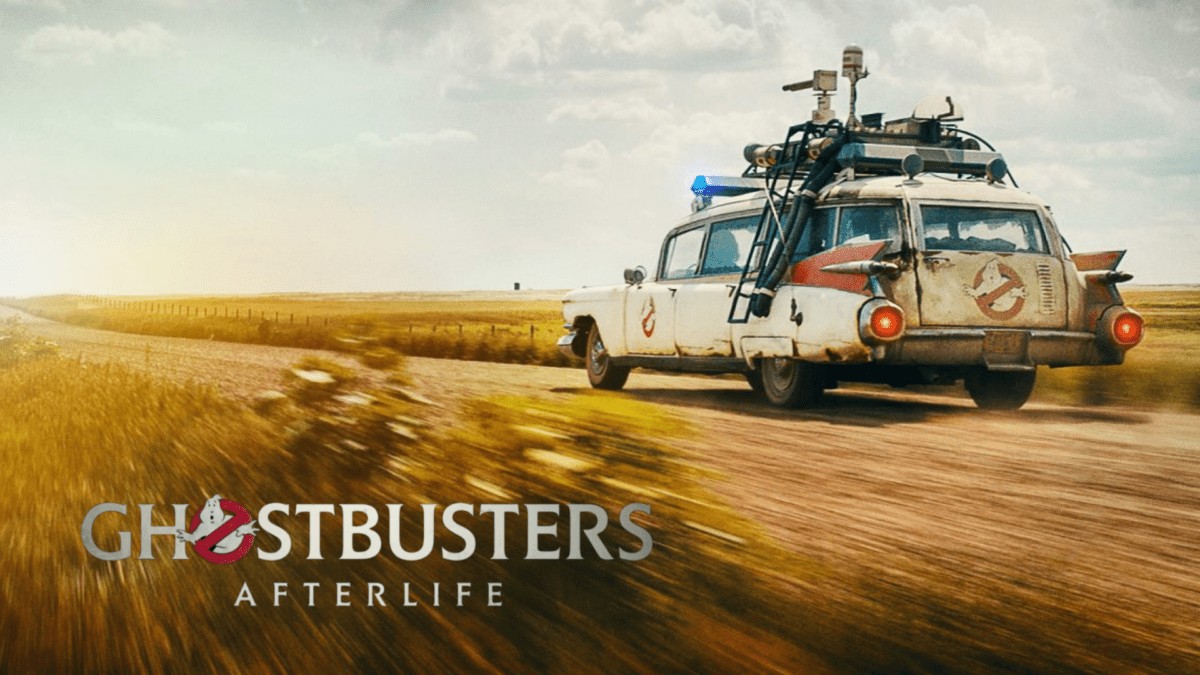Review: ‘Ghostbusters: Afterlife’ (spoiler-free)

Back in 1984, magic was made with the production of the now-beloved film Ghostbusters. For the uninformed, I’d suggest going and watching the episode of Netflix’s show The Movies That Made Us about the production of the film. For the sake of this article, I’ll sum it up in a few words: hectic and improbable. Somehow, they overcame all of their greatest issues to strike gold (of the “hilarious and perfect 105-minute long” variety).
The original film was a perfect blend of nothing and everything. There might not be a plot, sure, but there’s a general idea and premise that works as a framework for smaller almost sketch-like scenes that you might find on Saturday Night Live. This was the same formula that was re-attempted in Paul Fieg’s 2016 remake of the original film, but for me, it mostly felt like nothing beyond a flat imitation of something else that worked far better.
So going into Ghostbusters: Afterlife, honestly, I was worried. The original film worked because the people behind the production were smart. Director Ivan Reitman knew when to let the cast go on improvisational tangents and knew when to reel them in. That’s exactly where the 2016 film failed, as most of the run-time felt like jokes that went on far too long or rehashed bits that were already played out. With Ivan Reitman’s son, Jason Reitman, behind the camera, I was worried that the aspect of shoes too big to fill would be just that – too big to fill.
The beating heart of this film is the idea of legacy, in front of and behind the camera. As I mentioned, the director of this film is kind of a “stepping into royalty” situation. Jason Reitman grew up around these films and even has a brief appearance in 1989’s Ghostbusters 2. He’s talked on multiple occasions about the personal importance of directing the sequel to his father’s classic films.
While the story is undoubtedly about legacy, I think it walks a fine line and never gets too indulgent. This might be my disconnect as someone far younger than the majority of others who will review this movie, but at no point did I feel that it leaned too hard on nostalgia as a crutch for emotion. The story is the story: setup, build-up, pay-off; it’s all there and I guess it just scratches the right itch for me, even if it doesn’t for everyone else (that’s just subjectivity).
And of course, I need to touch on the cast because they are phenomenal. Mckenna Grace is the main character of this film. You’d be hard-pressed to find someone under the age of 30 who can act as well as she can, and she proves that here. Finn Wolfhard gets a lot of love and screen time, but he’s a bit more removed from the main story and stands in for comedic relief most of the time.
Most importantly though I think, with the themes of legacy, Carrie Coon controls this film as Callie Spengler, the daughter of Egon. When we first meet her, she seems like a fun mom who likes a level playing field with her children and they all get along. But she has a hint of cynicism, and that cynicism gets stronger and stronger and stronger until it pays off. That’s where the intelligence of the filmmaking became clear to me because they never go so far with it that she loses me as a character. I understand her, I understand why she feels how she does, and then it pays off when the time comes. It’s well-executed and in hindsight, she’s truly the crux of the film and its themes.
Paul Rudd and Logan Kim do well in the film, even just as comedic relief. Celeste O’Connor is also really good, but all three of these performances are underserviced because at no point are they given any depth. But I think that’s mostly because this movie has a narrow focus that in the end, is really what makes it all work.
I had an excellent time watching Ghostbusters: Afterlife, and I would recommend seeing this movie in theaters while you can.
My rating for Ghostbusters: Afterlife:
★★★★ /♥♥♥♥♥
*The rating scale is out of 5 stars (filmmaking/storytelling quality) and 5 hearts (entertainment quality).


